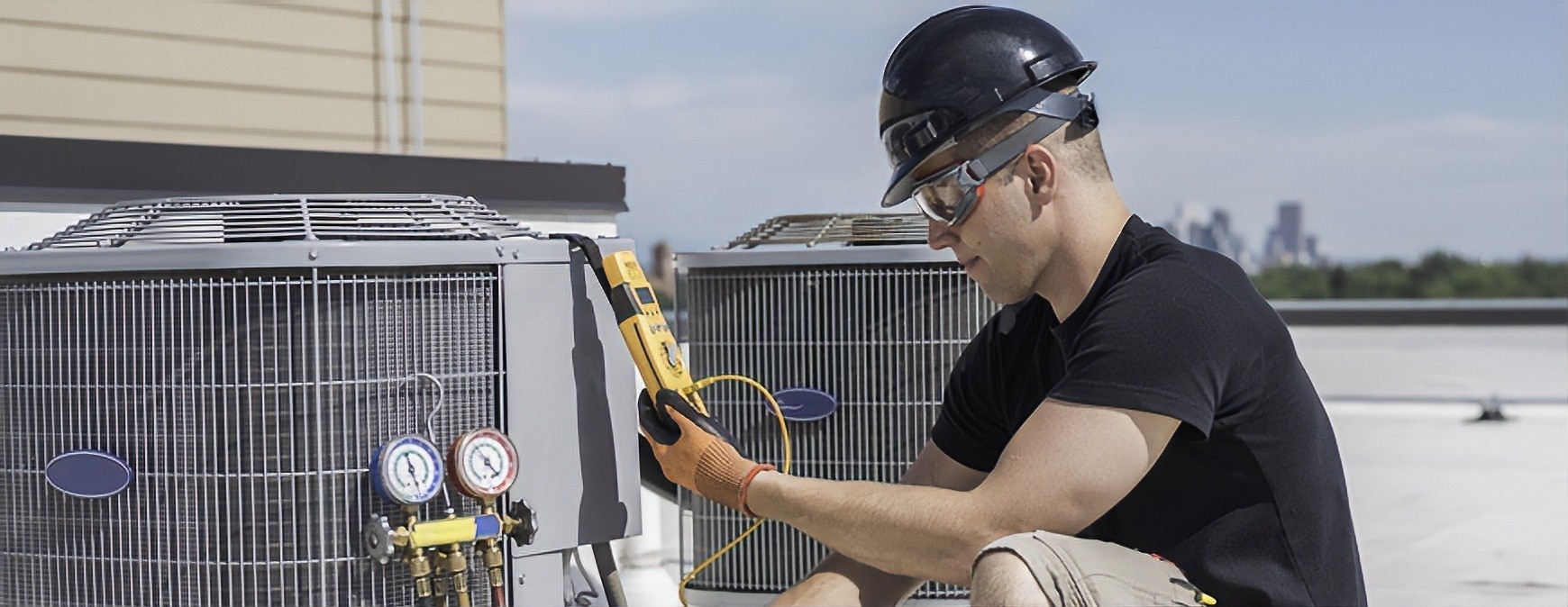
HVAC jobs can be found across the United States, with 324,310 technicians employed nationwide in 2018, reports the Bureau of Labor Statistics (BLS).[1]
But, job prospects may be best in the five states with the highest levels of employment of HVAC technicians.
5 Top States for HVAC Work
- Florida
- California
- Texas
- New York
- Pennsylvania[1]
HVAC Job Outlook in Top States for Techs
What can you expect from the job market in the five states with the highest levels of employment for HVAC technicians? Find important job data for each state below.
Florida
Number of HVAC Techs Employed in 2018: 29,650.[1]
Top Metro Area for HVAC Jobs: Miami-Fort Lauderdale-West Palm Beach (7,480 employed in 2018).[1]
Get Started on the Path to a New Career
Fill out our form to learn how we can help you change your life.
California
Number of HVAC Techs Employed in 2018: 27,720.[1]
Top Metro Area for HVAC Jobs: Los Angeles-Long Beach-Anaheim (8,100 employed in 2018).[1]
Texas
Number of HVAC Techs Employed in 2018: 25,290.[1]
Top Metro Areas for HVAC Jobs:
- Dallas-Fort Worth-Arlington (7,160 employed in 2018).[1]
- Houston-The Woodlands-Sugarland (6,800 employed in 2018).[1]
New York
Number of HVAC Techs Employed in 2018: 19,160.[1]
Top Metro Areas for HVAC Jobs: New York-Jersey City (19,250 employed in 2018).[1]
Pennsylvania
Number of HVAC Techs Employed in 2018: 15,330.[1]
Top Metro Area for HVAC Jobs: Philadelphia-Camden-Wilmington (8,060 employed in 2018).[1]
State HVAC Job Growth Spotlight: Arizona
While Arizona didn’t make the BLS’s list of top five states for HVAC employment levels in 2018, the Phoenix-Mesa-Scottsdale metro area has promising numbers: 6,220 employed in 2018.[1]
How to Get an HVAC Job
How can you land an HVAC job in one of these top states or elsewhere throughout the country? Below are steps individuals often take on the path to becoming an HVAC technician:
Step 1: Graduate from High School or Earn Your GED.
Step 2: Complete HVAC Training at a Trade School, like The Refrigeration School.
Step 3: Earn EPA Certification for HVAC Techs.
Step 4: Compose a Skilled Trades Resume.
Step 5: Utilize HVAC Career Resources like Industry Specific Job Boards.
Step 6: Prepare for HVAC Job Interviews.
Step 7: Get an Entry-Level HVAC Job.
Step 8: Test for Other Types of HVAC Certification.
While the HVAC career path can vary with the individual, the BLS notes that formal HVAC training at a trade school is becoming increasingly common as the complexity of the equipment increases. In fact, many employers look for applicants with this credential these days, along with other important skills.[2]
HVAC School to Prepare for Jobs in Top States
Job prospects for HVAC technicians should be much faster than average through 2028, with the BLS predicting 13 percent employment growth nationally. That’s more than twice the 5 percent growth the agency predicts for all occupations.[3]
If you’re interested in working as an HVAC technician in one of these top states or anywhere in the country, vocational training can be an important step given the increasing complexity of the equipment and preference of employers to hire applicants with this credential.
Find out more about what you will learn in HVAC school if you choose to take this route to a career in heating, ventilation, air conditioning and refrigeration.
Additional Sources
1 – https://www.bls.gov/oes/current/oes499021.htm
2 – https://www.bls.gov/ooh/installation-maintenance-and-repair/heating-air-conditioning-and-refrigeration, https://www.bls.gov/ooh/installation-maintenance-and-repair/heating-air-conditioning-and-refrigeration-mechanics-and-installers.htm
3 – https://www.bls.gov/ooh/installation-maintenance-and-repair/heating-air-conditioning-and-refrigeration-mechanics-and-installers.htm#tab-6, https://www.bls.gov/ooh/installation-maintenance-and-repair/heating-air-conditioning-and-refrigeration-mechanics-and-installers.htm#tab-6
Arizona – https://www.careeronestop.org/Toolkit/Careers/Occupations/occupation-profile.aspx?keyword=Heating%2C%20Air%20Conditioning%2C%20and%20Refrigeration%20Mechanics%20and%20Installers&onetcode=49902100&location=Phoenix%2C%20AZ
This blog has been labeled as archived as it may no longer contain the most up-to-date data. For a list of all current blog posts, please visit our blog homepage at https://www.rsi.edu/blog/

